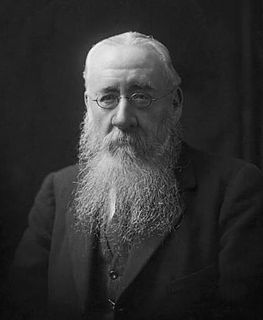A Quote by Richard Hooker
He that goeth about to persuade a multitude that they are not so well governed as they ought to be shall never want attentive and favorable hearers.
Related Quotes
We ought to be able to persuade on opposite sides of a question; as also we ought in the case of arguing by syllogism: not that we should practice both, for it is not right to persuade to what is bad; but in order that the bearing of the case may not escape us, and that when another makes an unfair use of these reasonings, we may be able to solve them.
There never did, there never will, and there never can exist a parliament, or any description of men, or any generation of men, in any country, possessed of the right or the power of binding and controlling posterity to the 'end of time,' or of commanding for ever how the world shall be governed, or who shall govern it. Every age and generation must be as free to act for itself, in all cases, as the ages and generations which preceded it.






































